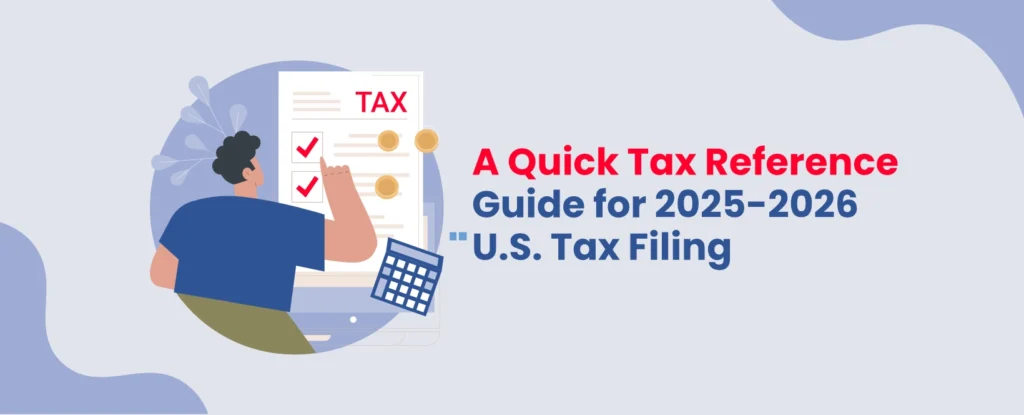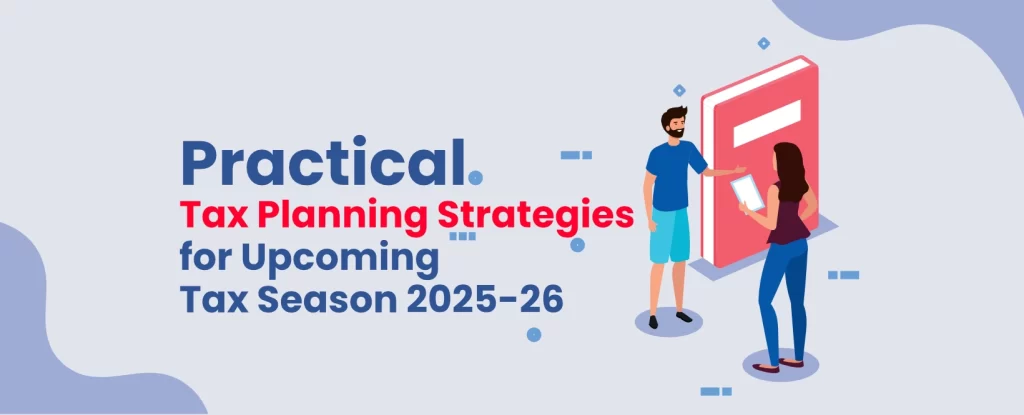As the Year 2024 approaches its conclusion, many small businesses are preparing for a promising new start. For this, one must first pause and reflect. What went well this year? What could have been done differently? Was there a heavy cash outflow on taxes? Are there ways to minimize this tax burden in the new year?
Year-end tax planning is crucial for business success. It isn’t just a way to save money; it helps you create a solid financial foundation for your business. Here are some tips that can help US business owners maximize tax deductions, manage cash flow, and stay ahead of the game.
Benefits of Year-End Tax Planning
Strategic tax planning offers more than just immediate financial benefits; it’s an opportunity to:
- Reduce Tax Liability: Strategic planning helps you take advantage of all eligible deductions and credits and can help you lower the amount you owe.
- Improve Cash Flow: It helps you align your cash flow with your business’s financial goals.
- Avoid Penalties: Early tax planning helps businesses minimize the risk of late filings, errors, or underpayments that could otherwise result in penalties.
- Plan for Future Growth: Proper tax planning helps businesses understand where they are headed while making adjustments necessary for long-term growth.
Strategic Tips for Maximum Tax Savings
1. Maximize Deductions Before Year-End
Year 2024-25 tax code offers numerous opportunities for small businesses and CPA firms (to help their clients) reduce their tax bills. Some common tax credits and deductions include Home Office Expenses, Business Meal Deductions, Child Tax Credit, Earned Income Tax Credit (EITC), American Opportunity Tax Credit (AOTC), IRA and 401(k) Deductions, Employee Retention Tax Credit (ERTC), Energy Efficiency Tax Credits, and more.
Pro Tip: Tax credits reduce your tax liability dollar-for-dollar and can make a big difference in your bottom line. Work closely with a certified tax professional to ensure you’re leveraging all available deductions and credits that apply to your business.
2. Manage Cash Flow and Expenses
Year-end planning offers a chance to align your cash flow with tax advantages.
- Defer Income: If you foresee being in a lower tax bracket next year, consider deferring your income into the following year to reduce your current tax liability.
- Accelerate Expenses: Pay for services, subscriptions, or recurring expenses (like rent or utility bills) before this year’s end to increase your deductible costs.
- Write-Off Bad Debts: If you’ve invoiced clients who are not paying, write them off as bad debts to offset your taxable income.
3. Consider Tax-Advantaged Retirement Contributions
Retirement plans not only help you save for the future but also reduce your taxable income. Some options to explore include:
- Solo 401(k): For 2024, you can contribute up to $23,000 as an employee if you’re under 50, or $30,500 if you’re 50 or older. Additionally, as an employer, you can contribute up to 25% of your business income, for a combined maximum of $69,000 ($73,000 if you are 50 and above).
- SEP IRA: For small businesses, contribute up to 25% of your compensation or $69,000, whichever is less.
- Defined Benefit Plans: These plans offer significant tax benefits for high-income earners, allowing contributions that can far exceed 401(k) limits.
4. Optimize Your Charitable Contributions
Charitable contributions are a great way to save on taxes. They reduce your taxable liabilities while allowing you to support causes that matter. Small business owners can leverage these contributions as a key component of year-end tax planning. Here’s how you can maximize the financial and philanthropic benefits of charitable contributions:
- Focus on Tax-Deductible Donations: Not all contributions are tax-deductible, so make sure all contributions are made to IRS-recognized 501(c)(3) nonprofits. Use the IRS Tax Exempt Organization Search tool to confirm an organization’s eligibility. Cash, goods, real estate, and even stocks can qualify as tax-deductible contributions. Make sure to properly document these non-cash donations.
Pro Tip: You must itemize charitable deductions on your tax return and ensure that your total itemized deductions exceed the standard deductions.
- Donate Appreciated Assets: Donate stocks, bonds, and other appreciated investments to save your tax bill. Donating appreciated assets allows you to save capital gains taxes on the increased value. This strategy is ideal for business owners with strong investment portfolios.
5. Organize Your Financial Records for 2024
Preparation is key to a smooth tax filing process. Use the year-end to:
- Reconcile Your Bank Accounts: Check your income and expense accounts and make sure they match your bank statements.
- Collect W-9s and 1099s: If you’ve worked with contractors, gather the necessary forms for tax reporting.
- Review Payroll: Make sure that all employee wages and benefits are accurately recorded and documented.
Start the New Year on a Strong Foot
Year-end tax planning is more than a checklist – it’s an opportunity to optimize your business financial strategy and set the tone for the year ahead. So, follow these tips to reduce your tax burden and focus on growing your business.
At KnowVisory Global, we offer expert tax planning and return preparation services to help businesses improve cash flow and stay IRS compliant. Our team is here to provide personalized support so you can enter the new year with confidence and keep your financials on track.
Contact us today to get started on securing a financially prosperous 2025!


